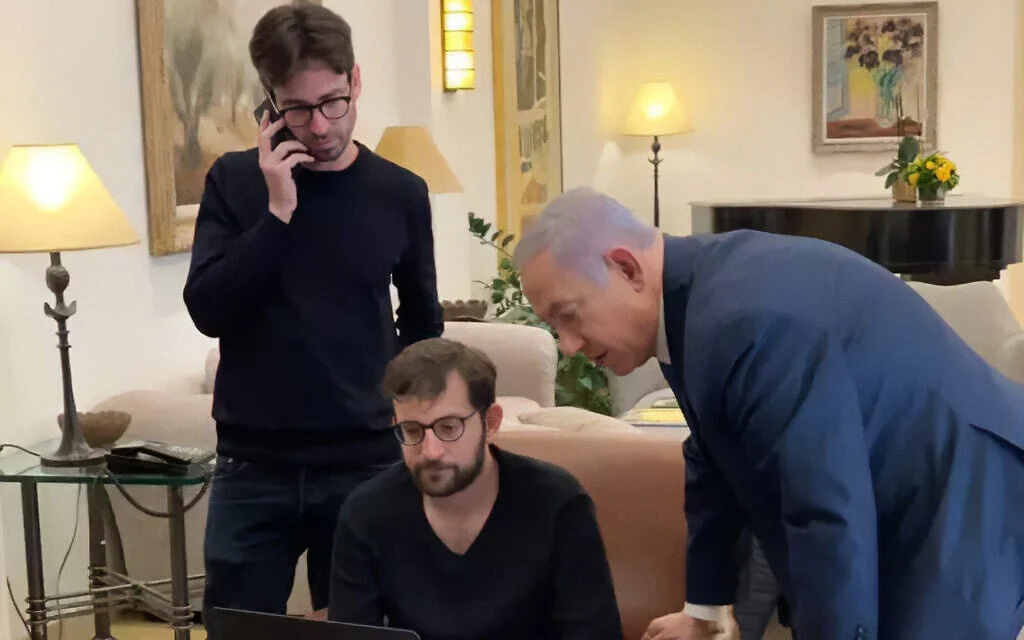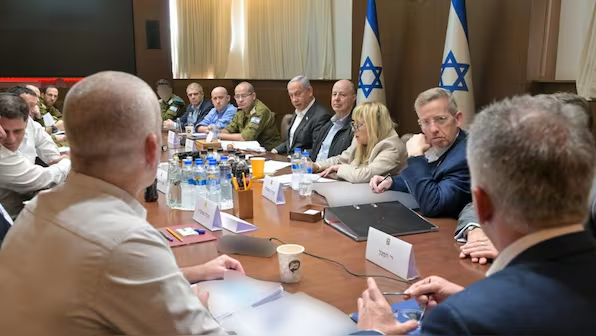Israeli Court Slaps sweeping gag order has been placed by an Israeli court on an explosive investigation involving top aides to Prime Minister Benjamin Netanyahu and their alleged financial ties to the government of Qatar. The Rishon Lezion Magistrate’s Court issued the order to prevent the media from publishing any details or even quoting foreign reports about the case. The decision is stirring intense public interest and political tension across Israel.
What Is the Qatar Scandal About?
At the center of the controversy are two senior aides to Prime Minister Netanyahu: Jonatan Urich and Eli Feldstein. Both are facing serious accusations of accepting large sums of money to promote Qatar’s image and influence inside Israel. The payments reportedly came through an American lobbying firm and were allegedly used to help position Qatar as a leading mediator in the Israel-Hamas hostage negotiations, possibly pushing Egypt out of that role.
These allegations raise major questions about foreign influence on Israeli politics and whether any security interests were compromised. Qatar, while being a key regional player, has faced criticism in Israel due to its ties to Hamas and its role in Gaza.
The scandal, now being dubbed by some as “Qatargate,” has not only shaken Netanyahu’s political camp but also intensified tensions within the Israeli security and intelligence community.
Aides Arrested, Legal Drama Unfolds
Jonatan Urich and Eli Feldstein were arrested in late March 2025 by Israeli authorities. They were accused of serious crimes, including bribery, fraud, and breach of trust. According to sources familiar with the case, the arrests were made after weeks of quiet surveillance and data collection by law enforcement.

While Feldstein was later released to house arrest under strict conditions, Urich remains in detention as the investigation deepens. Both individuals are close to Netanyahu and were known to be part of his trusted inner circle.
The gag order now in place prevents all Israeli news outlets from reporting on the case’s details. Even foreign media reports cannot be quoted by local journalists. This level of secrecy is unusual and has triggered debate over press freedom and public accountability.
Netanyahu Not a Suspect — But Not in the Clear
Prime Minister Netanyahu himself is not a suspect in the Qatar affair. However, he has reportedly been questioned and provided testimony during the investigation. He has dismissed the allegations as politically motivated attacks meant to destabilize his leadership during a crucial time.
Netanyahu is already entangled in a separate corruption trial involving charges of fraud, breach of trust, and accepting bribes in unrelated cases. These fresh allegations concerning his aides only add to the political pressure he is under.
Critics say that even if Netanyahu is not directly involved in the Qatar case, the fact that such influence may have existed within his closest advisory team raises serious concerns about his oversight and judgment.
Rising Tensions in Israel’s Security Leadership
Beyond the political headlines, the scandal has opened a deep rift between Prime Minister Netanyahu and key members of Israel’s security establishment. Shin Bet chief Ronen Bar has reportedly clashed with Netanyahu over the direction of the investigation.
Bar claims that Netanyahu attempted to fire him after he refused to carry out certain surveillance operations against anti-government protesters. He also alleged that the prime minister demanded personal loyalty over professional conduct, which he refused to offer.
Security experts warn that any effort to interfere with the Shin Bet or law enforcement agencies could damage the integrity of the investigation and harm national security.
Public Reaction and the Silence in the Media
The court’s decision to enforce a total gag order has created a storm of speculation among the Israeli public. On social media, hashtags related to the Qatar scandal are trending, even as media outlets remain legally restricted from reporting details.
Many citizens, activists, and journalists are calling for more transparency. They argue that the public has a right to know about alleged corruption involving top government figures, especially when national security and foreign influence are involved.
At the same time, others defend the gag order, saying it protects the legal process and prevents misinformation from spreading. Some legal experts note that in sensitive national security cases, secrecy can be essential—at least until the full picture emerges.
What Happens Next?
As the 30-day gag order continues, the case is far from over. Legal teams, intelligence agencies, and political advisors are all closely watching how the situation unfolds. The investigation is expected to expand, possibly implicating more individuals or uncovering deeper networks of influence.
If the allegations are proven true, they could have major diplomatic consequences, particularly for Israel’s relationships with Egypt, the United States, and Gulf nations. Qatar’s role in Gaza and the hostage talks has already been a point of contention. This case could reshape how Israel handles its regional alliances and negotiations.
Meanwhile, the Netanyahu government continues to face growing public protests, political instability, and mounting legal troubles. With both domestic and international pressure rising, the coming weeks could prove to be critical not just for the prime minister’s aides—but for Israel’s political future as a whole.



